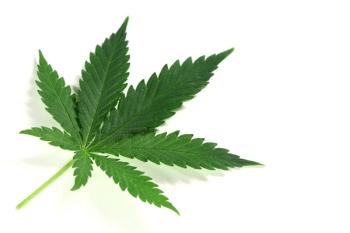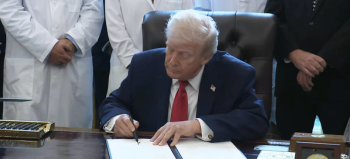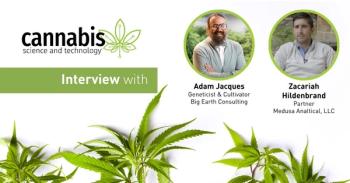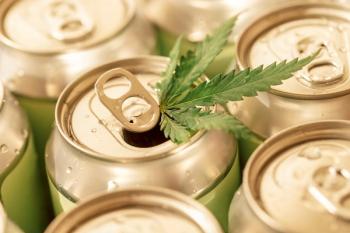
The Serious THC Problem in the US
A recent article published by FiveThirtyEight (1) was highlighted on major news networks across the US, bringing attention to a very important issue facing the cannabis industry: how much tetrahydrocannabinol (THC) is actually in products. Here, we highlight some of the findings from the FiveThirtyEight report and what it means for the cannabis industry.
THC testing whistleblower, Keegan Skeate, first detected the irregularities in cannabis laboratories during his time at Praxis Laboratory. This Washington state laboratory conducts consumer safety tests and THC potency analysis for legal cannabis products (1). During a shift in 2018, one of his fellow lab technicians approached him with the speculation that someone was manipulating her test results. Her spreadsheet numbers looked irregular and the recorded THC potency values were higher than she remembered measuring. Reexamining his own test results, Skeate witnessed a similar pattern.
Last year, the United States legal cannabis industry sold over $17 billion worth of cannabis. The industry’s infatuation with THC has spurred the creation of financial rewards for every marginal increase in THC potency. Consumers utilize THC percentages as nutritional labels, purchasing products based on their THC content. Laboratory systems entrusted with analysis are vulnerable to corruption. Across the country, numerous laboratories have been fined or suspended for manipulating potency results, having deficient procedures for detecting contaminants such as mold, or faking those contaminant tests altogether.
“THC inflation is pernicious, it’s easy to accomplish and there are strong financial incentives to do it,” said Don Land, a professor of chemistry and forensics at the University of California, Davis, and an adviser to the multistate cannabis laboratory company Steep Hill (1). “I believe that it is likely to happen at least infrequently in every market out there, and there’s very little chance that labs would get caught.”
Customers are being cheated out by corrupt facilities. With more states legalizing cannabis and regulations becoming increasingly dependent on measuring THC, laboratory fraud is unlikely to disappear. New York has plans to tax cannabis by THC content when commercial sales begin. There is also a nationwide movement growing in popularity to limit the THC content of legal products. It will be very difficult for consumers to trust a product’s THC potency listing because theywill not know how much THC is really there.
In the US, the cannabis industry is roaring to life. State governments delegate their regulatory eyes to private, for-profit cannabis laboratories. Cannabis farmers and processors must pay private, state-certified laboratories to perform batch-specific tests before any product can be sold to consumers. Samples from these laboratories must pass a quality assurance check, which ensures that they have not been contaminated by mold or other impurities. During these tests, products are also tested for their cannabinoid potency. Often this percentage is measured by cannabis’s two most common active compounds: THC and cannabidiol (CBD).
Laboratories throughout the country though have been accused of fraud. Such establishments have been caught inflating THC potency levels, passing moldy cannabis as safe, and falsifying results entirely. In a searing 2019 audit of Oregon’s testing system, the state’s testing program found that test results could not be ensured as reliable or that products were safe. The audit also revealed that the state regulatory program has limited authority, inadequate staffing, and inefficient processes.
Laboratory Fraud
Some experts believe that laboratory corruption is a widespread issue because the incentives to cheat the system are too high and enforcement is mostly ineffective. “The people paying for the tests are happier to get inaccurate tests that say [their products] are more potent than they really are,” Land said (1). Laboratory tests have excruciating financial impacts on the US multibillion-dollar legal cannabis market. If a sample fails its quality assurance test, a farmer may have to destroy an entire crop of cannabis. THC potencies have become a benchmark for both wholesale and retail cannabis prices for cured flower products, which is the common form of cannabis used for smoking.
Laboratory fraud allegations have existed since the very beginning of commercial cannabis sales, especially in Washington state, where recreational cannabis has been legally purchased since 2014. These claims are known due to laboratory data being public information in Washington, which has allowed data scientists to analyze test results of individual laboratories.
In late 2015, Jim MacRae, a private consultant to cannabis companies based in the Seattle suburbs, published research entailing that in a three-month period, four of Washington’s 14 certified laboratories had tested tens of thousands of samples without ever failing a sample for microbial contaminations. Other laboratories had failed as many as 45% of samples. Four months after MacRae’s investigation, the state suspended one of those four laboratories for six months. The state found that the laboratory had given the highest THC averages in the state, putting public health and safety at risk as well as exposing consumers to cannabis products that were not properly or accurately tested for microbial contamination and other hazards.
MacRae’s insight was again utilized in 2019 where he inspected the cannabis market in Nevada, which has publicly faced difficulty in regulating their industry. MacRae’s analysis showed that the average THC potency in the state had steadily increased from 19% to nearly 22% between 2018 and 2019. Multiple laboratories were releasing fraudulently inflated THC potencies and rarely failing samples for safety standards. In one five-month period, Nevada suspended the licenses of almost half of all of its certified laboratories. Days after MacRae had presented his data to the state, Nevada’s government warned the laboratory industry that they were actively investigating THC inflation. Within weeks, Nevada fined a laboratory for “unsound testing practices.”
A major issue in cannabis testing is that cannabis can have numerous natural variations between different samples taken from the same plant. Michigan is attempting to reduce the potential of sampling error by mandating that testing laboratories collect samples themselves with a standardized sampling process, rather than allowing farms to submit their own cherry-picked samples.
A Software’s Revelations
Remembering his coworkers’ allegations, Keegan Skeate created Praxis Laboratory’s information management system upon his promotion to software developer. Included in his software was a version control system. It had the ability to track every granular change to the company’s data workbooks. By the summer of 2020, their suspicions had been confirmed. The laboratory’s scientific director and owner, Dustin Newman, had been falsifying THC potency tests on a large scale.
“I saw that the first person signed off on one set of results and then Dustin signed off on a different set of results, and that was just crystal-clear proof,” Skeate said (1). “I tallied it all up and it was hundreds of samples.”
Skeate’s version control system revealed that over a three-month period in the summer of 2020, Newman had altered test results to boost the THC potencies for more than 1200 samples. The Washington State Liquor and Cannabis Board (WSLCB) officer reviewing Skeate’s whistleblower complaint wrote in his investigation file that the data showed “solid proof of tampering” because the weights showed inconsistent decimal points, varying between two, three, four, or five decimal points, even though the laboratory’s scales measured to four decimal points (1).
Two days after Skeate submitted his whistleblower evidence of widespread fraud, the WSLCB made an appearance at Praxis Laboratory. There, they were able to confirm the laboratory’s internal documents matched the information Skeate had secretly sent to the agency. Upon WSLCB’s confrontation with Newman, he denied inflating THC potencies but was unable to explain the irregularities. Five days after their visit, Newman emailed the state and said that he would no longer have any role in the operation or management of the company.
Seven months after Skeate first contacted the WSLCB, Washington issued a 180-day suspension of Praxis Laboratories and filed a complaint seeking to revoke its license due to evidence revealing the falsification of laboratory records.
Solving the Problem
According to Jim MacRae, there is a simple method to make sure cannabis laboratories are honest: Just look at their data. MacRae believes that state regulators should scan over laboratory data to spot fraudsters while also releasing it publicly so private firms can help report suspicious activity.
“Within three months of [Washington state] making the data available back in 2015 I had … informed the regulators that they had a problem. Those data should be available to journalists, to interested data scientists like myself, and social sciences the world over would be fascinated by this shit,” MacRae explained (1).
The public is still able to request Washington’s cannabis laboratory data but data firms across the state claim that it’s no longer usable due to a new state vendor who has muddled the system since 2018 (2). This has prevented MacRae from investigating laboratories for the past three years.
Cannabis’s federal prohibition also bans cannabis testing laboratories from having any federal business involvement, thus indebting them more to the cannabis industry. “That’s not an effective design of incentives for ensuring labs place priority on consumer protection (rather than industry protection)... Effective regulation means random compliance checks and secondary testing to ensure that the testing labs are in fact doing the job they are expected to do (and protect consumer’s safety, not industry profits),” said Rosalie Pacula, a professor of health policy, economics and law at the University of Southern California (1).
The state of Oklahoma has instated some of the strictest laboratory regulations in the country. Cannabis laboratories face regular proficiency tests and the state mandates laboratories to collect two samples from every test and then hold a reserve sample, which is used to investigate complaints. The second sample may be used as a calibration tool, with the state randomly retesting reserve samples. A laboratory must answer for any deviations between the first and second test.
“If by some chance they are outside the [testing accuracy] window, the lab director must do some evaluation to figure out how that happened,” said Lee Rhoades, the laboratory oversight manager for the Oklahoma Medical Marijuana Authority (OMMA) (1). “If it becomes a chronic situation where people simply cannot achieve the target value, there are provisions in our rules that allow us to take more action.”
With such rigorous testing framework, Oklahoma could become a good place to start for the government to standardize the cannabis testing industry and help protect consumers from cannabis testing fraud.
References
Newsletter
Unlock the latest breakthroughs in cannabis science—subscribe now to get expert insights, research, and industry updates delivered to your inbox.



